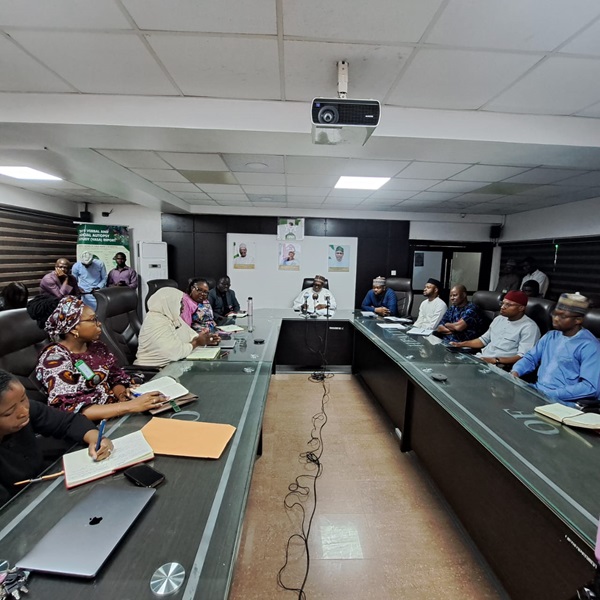
The Federal Government has highlighted the transformative progress of its health initiative targeting vulnerable women, showcasing success stories of free medical interventions provided to women in Bauchi, Niger and Borno states.
Minister of Health and Social Welfare, Prof. Muhammed Pate shared these insights during the second Fistula Steering Committee meeting held on Thursday in Abuja.
Science Nigeria reports that obstetric fistula, a devastating childbirth injury, primarily affects young women in Asia and sub-Saharan Africa. This condition arises from prolonged, obstructed labour, during which the baby’s head becomes stuck in the birth canal, cutting off blood flow to the mother’s soft tissues. This results in a hole, or fistula, forming between the bladder or rectum and the vagina.
The consequences are life-altering, leaving women unable to control their bladder or bowels. Surgery remains the only cure, but untreated cases lead to constant incontinence, kidney damage, ulcers, frequent infections and infertility.
During his remarks, Pate emphasised the initiative’s success in providing free surgical repairs for vulnerable women who would otherwise be unable to afford treatment. “This aligns with President Bola Tinubu’s vision of ensuring affordable, quality healthcare for all Nigerians, particularly underserved populations,” he said.
Looking toward 2025, the minister stressed the need to expand the program’s reach and impact, calling for intensified collaboration through the Integrated Support Programme for Health Access (ISPA). Pate underscored the government’s commitment to addressing health inequities and reaffirmed the initiative’s alignment with broader goals of universal healthcare access and improved maternal health outcomes.
Director-general of the NHIA, Dr. Kelechi Ohiri provided detailed updates on the program’s progress. He noted that the initiative has made significant strides in supporting women living with obstetric fistula through a comprehensive framework that ensures free treatment, post-care support and long-term healthcare access.
“The programme employs a three-step approach:
- Treatment of Morbidity: Immediate surgical or conservative interventions for fistula cases.
- Insurance Enrollment: Enrolling women in health insurance to cover future medical needs post-discharge.
- Post-Care Follow-Up: Providing continuous support to reduce recurrence and ensure access to essential healthcare services,” Ohiri explained.
The initiative, he revealed, has partnered with 18 healthcare facilities nationwide and collaborated with various stakeholders, including civil society organisations, state health insurance agencies, third-party administrators and the Federal Ministry of Health.
Since the programme’s inception, over 1,629 beneficiaries have received treatment, and nearly 2,000 claims have been submitted for payment. Ohiri highlighted that the introduction of independent administrators and third-party verification processes has enhanced transparency. Weekly payment processing has also reduced delays and inefficiencies, ensuring prompt reimbursement to healthcare facilities.
Beyond treatment, the initiative incorporates counselling on family planning services to prevent future complications and supports patient reintegration into their communities. Efforts are ongoing to increase awareness about the program, with collaborations with state health insurance agencies aimed at improving access and sustainability.
“This programme is a testament to our commitment to supporting all women in Nigeria, regardless of location and ensuring they have access to quality care and sustainable health coverage,” Ohiri said.
Dr. Bawa Maryam Shehu of the National Obstetric Fistula Centre in Ningi, Bauchi State, described the far-reaching consequences of obstetric fistula. She noted that, while successful surgery provides physical healing, the emotional and social impacts often persist. Many women face shame, isolation, and rejection from their communities.
“Women with fistula are often stigmatised and ostracised, with some even accused of witchcraft or promiscuity. Addressing these social challenges is as critical as providing medical treatment,” Shehu emphasised.
Managing director of the Anambra State Health Insurance Agency, Dr. Simeon Onyemaechicalled for a holistic approach to Nigeria’s health sector transformation. He stressed the importance of sustainability and partnerships, urging the government to leverage existing programs and funding, such as those provided by the National Directorate of Employment (NDE).
“These partnerships should include social empowerment and skills acquisition for vulnerable populations. By integrating healthcare with economic opportunities, we can ensure long-term impact and significantly improve maternal health outcomes,” Onyemaechi stated.
The initiative has garnered widespread recognition as a model for addressing obstetric fistula and advancing universal health coverage. Its focus on combining medical care with social support exemplifies a comprehensive approach to tackling one of Nigeria’s most pressing maternal health challenges.
Pate commended the efforts of all stakeholders involved, reiterating the government’s commitment to building a health system that leaves no one behind. He emphasised that the program reflects the administration’s vision of a robust, equitable healthcare system that prioritises the needs of vulnerable populations.
“While we have made significant strides, much work remains. As 2025 approaches, we must build on these achievements, scale up interventions, and continue to prioritise the health and well-being of Nigerian women,” Pate concluded.
The NHIA’s Fistula Free Programme represents a significant milestone in maternal health reform, offering hope to thousands of women across Nigeria. By addressing both the medical and social dimensions of obstetric fistula, the initiative ensures that beneficiaries not only receive life-saving treatment but also regain their dignity and independence.
As the government intensifies efforts to increase awareness and expand the programme, the initiative is poised to transform the lives of countless women, paving the way for a healthier, more equitable future.

